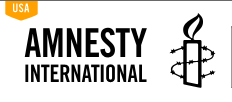 Amnesty International Media Release
Amnesty International Media Release
For Immediate Release
Thursday, March 31, 2011
Organization Repeats Call for Immediate Release of Seven Leaders
Contact: Suzanne Trimel, 212-633-4150, [email protected]
(New York) — The reimposition of 20-year jail terms on seven leaders of Iran’s Baha’i religious minority is “outrageous,” and shows Iran taking a “vindictive” route to persecute the community, Amnesty International said today as it made a renewed call for their immediate release.
The seven – some elderly and in poor health and held in harsh conditions — had previously had their sentences cut from 20 to 10 years by an Iranian appeal court, only for the authorities to reverse the decision.
“Yet again, the Iranian authorities are manipulating their own justice system to persecute members of a religious minority,” said Malcolm Smart, Amnesty International’s director for the Middle East and North Africa. “Instead of doubling their sentences, the authorities should be setting the Baha’i leaders free, right now, and guaranteeing their freedom to practice their religion free from threat or persecution.
“Such arbitrary and vindictive acts are a salutary reminder of why the U.N. Human Rights Council voted recently to create a Special Reporter on Iran,” said Smart. “The Council’s decision came not a moment too soon.”
The seven Baha’i leaders, two women and five men, are held in harsh conditions at Reja’i Shahr (also known as Gohardasht) prison in Karaj, near Tehran.
They were convicted of alleged crimes including “espionage for Israel”, “insulting religious sanctities” and “propaganda against the system” by a Revolutionary Court in Tehran in August last year. They denied all the charges against them.
In September 2010 they were told that their sentences had been reduced to 10 years after an appeal court acquitted them of some of the charges, including espionage, but they have never been given a written copy of either of the court verdicts.
It was first reported on March 18 that the 20-year sentence had been reinstated and this was confirmed by the Baha’i International Community yesterday. It appears the decision may be a result of a challenge to the reduced sentence by the Prosecutor General.
Arrests and harassment of Baha’is has increased sharply in recent years, with at least 79 Baha’is currently in prison.
Amnesty International has been campaigning for the immediate and unconditional release of the seven – – Fariba Kamalabadi, Mahvash Sabet, Jamaloddin Khanjani, Afif Naeimi, Saeid Rezaie, Behrouz Tavakkoli, and Vahid Tizfahm – since their arrest in 2008.
“This is the latest example of the deeply entrenched discrimination faced by the Baha’i minority in Iran,” said Smart. “It is also a reminder to the international community of how little regard the Iranian authorities pay to international human rights standards on freedom of belief, association, expression and the right to a fair trial.”
Background
The seven Baha’is were arrested between March and May 2008. One of their lawyers, Nobel laureate Shirin Ebadi, has felt unable to return to Iran since June 2009 as she believes she would not be able to continue her human rights work.
In February 2010, she told Amnesty International the accusations baseless.
Amnesty International is a Nobel Peace Prize-winning grassroots activist organization with more than 3 million supporters, activists and volunteers in more than 150 countries campaigning for human rights worldwide. The organization investigates and exposes abuses, educates and mobilizes the public, and works to protect people wherever justice, freedom, truth and dignity are denied.
# # #
—
Source: http://www.amnestyusa.org/document.php?id=ENGUSA20110331004&lang=e
April 4, 2011 7:46 am
For many times on the news items regarding the group of seven unjustly imprisoned Iranian Baha’is, particularly when those items are reported by the international news agencies, I have noticed that they have been referred to as the “ Baha’i LEADERS”.
The readers of these articles should kindly note that there is no such thing as “LEADER” or “LEADERS” in the Baha’i Faith. Hence, those seven unjustly imprisoned individuals who are repeatedly referred to as Baha’i “Leaders” are NOT, nor have ever been the leaders of the Iranian Baha’is. The affairs of the Baha’i communities are looked after and safeguarded by the “Spiritual Assemblies” who are the bodies of 9 members, elected amongst and by the adult (21 and more years old) Baha’is of those communities and none of those elected members are considered or seen as a “leader” either.
That would be much appreciated if the international news agencies would be more prudent in their reporting as not to create any misconceptions.